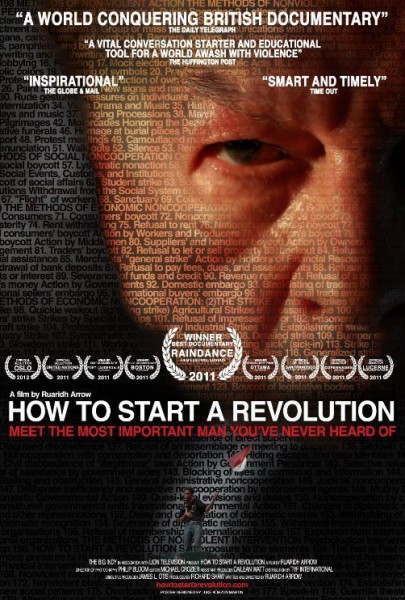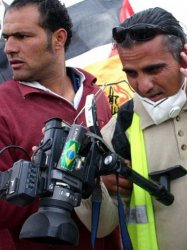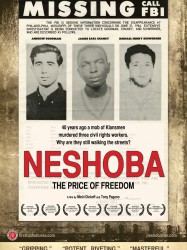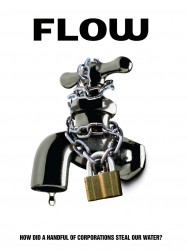How to Start a Revolution est un film de genre Documentaire réalisé par Ruaridh Arrow
How to Start a Revolution (2012)

Si vous aimez ce film, faites-le savoir !
How to Start a Revolution is a BAFTA award winning British documentary film about Nobel Peace Prize nominee and political theorist Gene Sharp, described as the world's foremost scholar on nonviolent revolution. The film describes Sharp's ideas, and their influence on popular uprisings around the world. Screened in cinemas and television in more than 22 countries it became an underground hit with the Occupy Wall St Movement.
Synopsis
COMMENT COMMENCER UNE RÉVOLUTION est la remarquable histoire inédite de Gene Sharp, nominé au prix Nobel de la paix, le plus grand expert mondial de la révolution non violente. Ce nouveau film (du premier réalisateur Ruaridh Arrow) révèle comment le travail de Gene a donné à une nouvelle génération de dirigeants révolutionnaires les armes nécessaires pour renverser les dictateurs. Il montre comment ses 198 étapes vers un changement de régime non violent ont inspiré des soulèvements de Serbie à l'Ukraine et de l'Égypte à la Syrie et comment son travail s'est répandu à travers le monde dans une vague imparable de profonds changements démocratiques. Comment démarrer une révolution est l'histoire du pouvoir des gens de changer leur monde, la révolution moderne et l'homme derrière tout cela.Commentaires
Postez un commentaire :
Suggestions de films similaires à How to Start a Revolution
Il y a 0 films avec le même réalisateur, 8964 ayant les mêmes genres cinématographiques, 7799 films qui ont les mêmes thèmes (dont 893 films qui ont les mêmes 2 thèmes que How to Start a Revolution), pour avoir au final 70 suggestions de films similaires.Si vous avez aimé How to Start a Revolution, vous aimerez sûrement les films similaires suivants :

5 Caméras Brisées (2011)
, 1h34Origine Israel
Genres Drame, Guerre, Documentaire, Policier
Thèmes Afrique post-coloniale, Film traitant du cinéma, Religion, Documentaire sur le monde des affaires, Documentaire sur le cinéma, Documentaire sur le droit, Documentaire sur la guerre, Documentaire historique, Documentaire sur une personnalité, Documentaire sur la politique, Documentaire sur la religion, Politique, Religion juive, Documentaire sur les films
Note78%





Lorsque son quatrième fils naît en 2005, Emad Burnat, un cameraman palestinien autodidacte, achète sa première caméra. Au même moment, dans son village de Bil'in, une barrière de séparation est construite et les villageois commencent à résister.

Neshoba (2010)
Genres Documentaire
Thèmes Le racisme, Documentaire sur la discrimination, Documentaire sur le droit, Documentaire historique, Documentaire sur une personnalité, Documentaire sur la politique, Politique
Note76%





Neshoba explores the history and changing racial attitudes of Neshoba County, Mississippi four decades after the murders of James Chaney, Andrew Goodman, and Michael Schwerner during Freedom Summer. The film captures the trial of Edgar Ray Killen, who granted the filmmakers "extraordinary access".

I.O.U.S.A. (2008)
, 1h25Réalisé par Patrick Creadon
Origine Etats-Unis
Genres Documentaire
Thèmes Documentaire historique, Documentaire sur la politique, Politique
Note73%





The film follows Bixby and Walker who describe systematically four serious deficits shaping the U.S. economy: budget, savings, the balance of payments, and leadership. As of the early 2008 release of the film they had created a national debt of over $9.6 trillion, $30,000 for each American.
 , 1h39
, 1h39Genres Guerre, Documentaire
Thèmes Documentaire sur le monde des affaires, Documentaire sur le cinéma, Documentaire sur la guerre, Documentaire historique, Documentaire sur une personnalité, Documentaire sur la politique, Politique, Documentaire sur la Seconde Guerre mondiale
Acteurs Veit Harlan, Hilde Körber, Christiane Kubrick, Kristina Söderbaum
Note68%






The Frontier Gandhi (2008)
, 1h28Genres Documentaire
Thèmes Documentaire sur une personnalité, Documentaire sur la politique, Politique
Acteurs Om Puri

Flower in the Gun Barrel (2008)
Origine Etats-Unis
Genres Documentaire
Thèmes Afrique post-coloniale, Le racisme, Documentaire sur la discrimination, Documentaire sur le droit, Documentaire sur la guerre, Documentaire historique, Documentaire sur une personnalité, Documentaire sur la politique, Politique
Note80%





To a large extent, the film consists of interviews with genocide survivors, many of whom were children in 1994. In all, over thirty survivors, perpetrators, and experts were interviewed for the film. In these interviews, the survivors discuss what it means to be a Rwandan and to live next door to people who killed their families. The survivors describe how they deal with their country's request that they forgive one another and move on, so that Rwanda can rebuild and unify itself. Perpetrators' views illuminate the madness that seized the culture in 1994; exploring the experience of apologizing to victims, and examining what it is like to be looked at as a murderer in Rwandan society.

Flow: For Love of Water (2008)
, 1h33Origine Etats-Unis
Genres Documentaire
Thèmes L'environnement, Documentaire sur l'environnement, Documentaire sur la politique, Politique
Note74%






The Order of Myths (2008)
, 1h19Origine Etats-Unis
Genres Documentaire
Thèmes Le racisme, Documentaire sur la discrimination, Documentaire sur le droit, Documentaire historique, Documentaire sur une personnalité, Documentaire sur la politique, Politique
Note68%






Fitna (2008)
, 17minutesGenres Documentaire
Thèmes Religion, Le terrorisme, Documentaire sur le droit, Documentaire sur la guerre, Documentaire historique, Documentaire sur la politique, Documentaire sur la religion, Documentaire sur le terrorisme, Politique, Religion musulmane
Note47%





The film shows a selection of Suras from the Qur'an, interspersed with newspaper clippings and media clips with The Arabian Dance and Åses død as an underscore.

Evita (2008)
, 1hRéalisé par Eduardo Montes-Bradley
Origine Etats-Unis
Genres Documentaire
Thèmes Documentaire sur une personnalité, Documentaire sur la politique, Politique
Acteurs María Eva Duarte de Perón
Note69%





 Connexion
Connexion